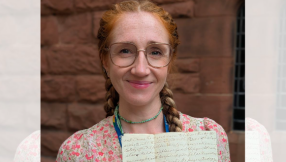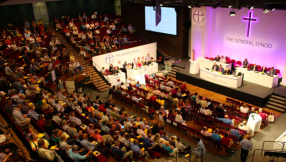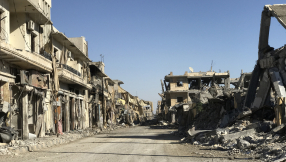UK and U.S. diplomats detained in Zimbabwe
The U.S. ambassador blamed the attack on President Robert Mugabe's government, which it accuses of trying to intimidate opposition leader Morgan Tsvangirai's supporters ahead of the June 27 run-off election.
"Now what they are trying to do is intimidate diplomats from travelling to the countryside to witness the violence being perpetrated against the population," U.S. Ambassador James McGee said in an interview on CNN.
The embassy said the diplomats were released after several hours.
Former colonial power Britain, human rights groups and Zimbabwe's opposition also accuse Mugabe of a campaign of violence to try to keep his 28-year hold on a power. Tsvangirai says 65 people have been killed.
Mugabe blames his opponents for the violence and sanctions imposed by Western countries for the collapse of the once prosperous economy. The opposition says he ruined Zimbabwe.
The attack on the diplomatic convoy took place in Bindura, 80 km (50 miles) north of Harare, the U.S. embassy said.
McGee said police stopped the vehicles at a roadblock and slashed the tyres. He said supporters of Mugabe threatened to set the vehicles ablaze unless the diplomats accompanied police to a nearby station.
"We do believe this is coming directly from the top," he said.
A British government spokesman said Zimbabwe's ambassador in London had been summoned to give an explanation.
Zimbabwe police were not available for comment.
Tsvangirai beat Mugabe in a March 29 presidential election but failed to win enough votes to avoid a second round. He was detained for nine hours on Wednesday but continued his campaign on Thursday.
OBSERVERS
South Africa said it planned to begin sending election observers to Zimbabwe this week as part of a larger mission sent by the Southern African Development Community, adding that it was essential that the election be fair and transparent.
Simba Makoni, the ruling party defector who came third in the first round called on Thursday for the run-off to be scrapped to prevent further bloodshed.
Makoni won over 8 percent and those who voted for him could be crucial in deciding the contest.
Makoni, who favours a national unity government, told reporters that Zimbabwe could not afford another election and it would not end the political crisis and economic collapse.
In an unusually harsh attack by an African leader, Kenyan Prime Minister Raila Odinga branded Mugabe a dictator and said in Cape Town that Zimbabwe's run-off campaign was an embarrassment to the continent's efforts to promote democracy.
It is rare for African leaders to publicly attack Mugabe, who is still seen as a hero by millions on the continent for fighting to end British rule in Zimbabwe in 1980 and for supporting other anti-colonial struggles.
South African President Thabo Mbeki has been among those criticised for taking too soft a line on Mugabe's government, which has presided over an economic meltdown marked by inflation over 165,000 percent and chronic food shortages.
In an indicator of Zimbabwe's rapid economic decline, its dollar currency plunged to a new low of between 995 million and 1.45 billion to the greenback on Thursday from an average 700 million at the beginning of the week.













